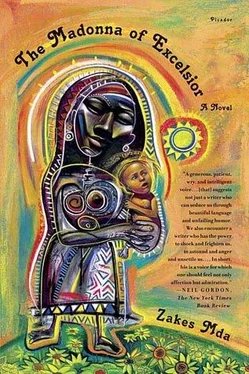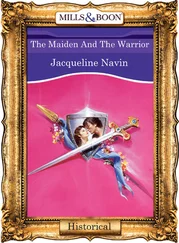We never questioned what informed these generalisations.
VILIKI WALKED aimlessly down the main street of Excelsior, which was really the only street of note in the town. The rest of the streets were lined with residential houses. The street was bustling with excited people. There was a carnival atmosphere as men, women and children walked from one shop to the next with plastic bags full of groceries. Other people gathered at the Greek café, which was really a Portuguese café, to treat themselves to Russian sausages and chips.
It was payday in Excelsior. The aged who were on old-age pensions had received their monthly grants. And their children and grandchildren were out to spend the money on both necessities and luxuries. Payday always caused such excitement. Even children knew when it was payday, because most families depended on the money that the government gave to the aged for being old. The most fortunate families were those that had one or two mentally or physically disabled members. Their disability grants, paid on the same day as the old-age pensions, fed entire families.
Viliki became part of the buzz of excitement, joining some friends from Mahlatswetsa Location who wanted to have a few beers at the off-sales liquor outlet, or bottle store, adjacent to the only hotel in town. They bought the beers and sat on the window ledge outside the bottle store, as was the custom. The owner allowed them to sit on the inside window sill in front of the counter when the weather was not conducive to imbibing outdoors.
They watched as Afrikaner men and women walked in and out of the pub at the hotel. Viliki and his friends had never been inside that pub. The thought never even entered their heads to drink there. It was the domain of the Afrikaners of Excelsior. And everyone left it at that.
Viliki saw Tjaart Cronje and Johannes Smit climb out of a four-wheel-drive vehicle, singing boisterously. Jacomina followed, reprimanding them for making too much noise. They only laughed at her and sang even louder, dancing clownishly around her as they walked into the pub.
Viliki had not seen Johannes Smit for quite some time. Since the time he had burst into the council chamber to complain about the increase in rates a year ago. To cheers of derision from the Movement council members and of admiration from Tjaart Cronje, and to the bemusement of the National Party members, he had stood up in the gallery, and had shouted out of turn, “I am a farmer! I feed South Africa! The very Mandelas and Mbekis cannot survive without me!”
Viliki sipped his beer from the one-litre bottle and wondered why people like Tjaart Cronje and Johannes Smit were so angry. Were people like Viliki, Popi and Niki not the ones who should be angry? Were they not entitled even to a shred of anger? Why should the Afrikaner hoard all the anger?
STREET SIGNS INDICATE that this is a crossroad. He pulls the two-wheeled unhooded cart across the crimson soil like a rickshaw man. His red hair has been tied into a big bun that hangs like a cap over his face. It is a small delicate face connected by a thick neck to a small delicate body clad in golden-yellow overalls. His grey boots have patches of red from the soil. His body is bent slightly forward from the weight of the cart. He pulls it among golden-yellow sunflowers. On the cart sits a brown Mother Mary with a brown Baby Jesus in her arms. She looks like a nun in a blue veil. Three giant candles burn in the cart: one in front, two at the back. A white giant star of Bethlehem spreads its white light between the puller of the cart and its riders. Sunflowers flourish on the crimson soil. Three giant sunflowers grow out of the blue and white sky.
Kersfees in die Karretjie. Xmas in the Small Cart. By: Father Frans Claer-houut . Popi read the bottom of the postcard and laughed. She had never noticed before that they had misspelt the trinity’s name. They had added an extra u , which served him right, as he had mastered the art of distorting everything. Houses. People. Donkeys. Rickshaws. Sunflowers and cosmos. Even holy personages like Jesus and Mary. It was poetic justice that the printer had distorted his name too. A man who could be possessed by such beautiful madness that he placed road signs in the middle of a sunflower field deserved to have his name distorted.
It was Christmas in Excelsior, too. Popi had taken out her exercise book to look at the postcards. She wondered if the trinity would be painting on Christmas Day. Maybe the picture on the postcard was created on Christmas Day. She remembered her last visit to the trinity’s studio many years ago. As a fourteen-year-old freckled girl. Before she became a woman of thirty whose tall slender frame was burdened with anger. She felt an urge to go to the mission house in Tweespruit to see him again. To bathe her troubled soul in the colourful canvases that surrounded him.
Christmas had lost the festive aura it used to have when she was a little girl. Those days, girls wore their new taffeta dresses and went to show off at church in the morning. Boys also dressed up in colourful new shirts, even when the pants of those whose parents could not afford new outfits were the old Sunday pants. Christ-mases were feasting days. Families used to cook special meals. After a big lunch of rice, chicken, cabbage, beetroot, tomato and onion gravy, jelly and custard, and home-baked hard cakes with ginger beer, the children would take a songful stroll to the houses of white people in town. There they would stand at the gate of each house and ask for a “Christmas Box.” The white folk would send their children or maids to the gate with sweets and cookies. Late in the afternoon the children would sing their way back to Mahlatswetsa Location, where they would divide the spoils amongst themselves.
But these days, Christmas had lost its lustre. Children did not seem to care any more. They spent the whole day in their old clothes. Parents still maintained the tradition of buying new clothes. But the children refused to wear them on Christmas Day. They kept them in their boxes to wear during the year when no one would know they had been bought for Christmas.
Christmas had now become like an ordinary Sunday, except for the fact that the service was a Christmas service; the reading from the Bible was about the birth of Christ, and the preaching was about what that birth meant to the world. After the service, people went home to eat their ordinary Sunday lunches, which looked like the Christmas lunches of old except for the absence of jelly and custard, and cakes and ginger beer. Adults went to get drunk, as they did every weekend, while children just loitered around street corners in small groups.
This Christmas, unlike others, Popi had not cooked any special lunch. Neither had Niki. Popi sat on the bed and stared at the Christmas cart. She wondered why a man instead of the customary donkey was pulling it. She could never figure out the trinity. How his mind worked. Still, she enjoyed his madness, and found it moving.
Niki sat under one of the bluegum trees that lined the road leading into Excelsior. The evergreen melliodora and the black ironbark well beloved by honeybees. She sat on a white plastic garden chair, and watched the worker bees as they flew from the trees laden with pollen and nectar to the hives that she had placed on the ground. Her eyes followed the bees from the hives back to the flowers on the trees and into the hives again. The wooden hives could be seen among the long blades of grass, sometimes peeping above them, along the three-kilometre stretch of road. She had placed them randomly, facing in different directions to make it easier for the bees to find their particular hives. If the hives had been placed in a straight line facing the same direction, this would have confused the bees, as they would not have known to which hive they belonged. She had learnt, at the one-day bee-keeping course on a farm at Ficksburg Viliki had sent her to, that unlike American bees, South African bees did not know how to count.
Читать дальше












